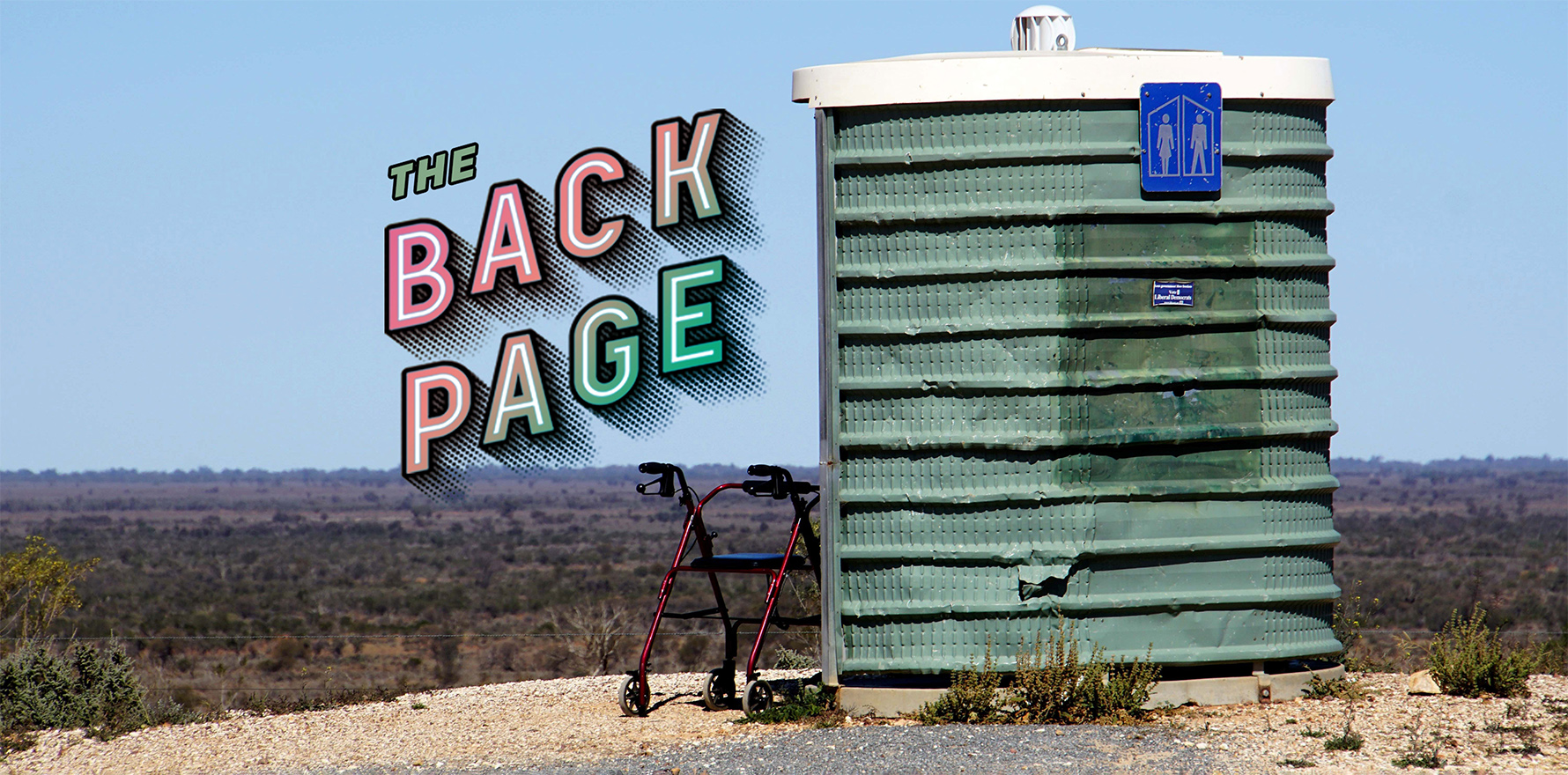It’s hardly an inconvenience, so please keep a lid on it.
With international borders gradually easing their way open, the joys and challenges of global travel are once again beckoning adventurous spirits.
Your Back Page correspondent, for one, is pining for the cultural enlightenments presented when abroad at those moments when nature invariably calls.
From the sci-fi wonders of the Japanese commodes, the baffling porcelain-shelf arrangements found in the Netherlands, to the little more than a hole-in-the-ground options popular in rural locales, we miss visiting them all equally.
But, thanks to research released this week by boffins at ANU and the Uni of SA, an added element of sanitary caution shall be exercised at future convenience breaks, be they offshore or on home soil.
Shutting the lid (presuming there’s one available) before flushing shall henceforth become an “always” choice. To be fair, that pretty much was the go-to option anyway, but now there’s solid proof to justify the practice.
Brought to us via a “global review of the risks of bacterial and viral transmissions in public bathrooms,” the evidence for closing the seat prior to the flush is compelling.
According to our intrepid dunny geeks, leaving that lid open after flushing can “disperse contaminated droplets” in a range of a metre and beyond. What’s more, those defecatory dispersals can linger in the air for up to half an hour.
The covid pandemic has done much to focus attention on personal and public hygiene, and our toileting habits have been no exception, with anecdotal evidence suggesting public washrooms have been avoided due to perceived risks of covid transmission.
“Some people have been worried about using public washrooms during the pandemic, but if you minimise your time in the bathroom, wash and dry your hands properly, and don’t use your mobile phone, eat or drink, then the risks should be low, especially if the bathroom is well maintained,” research co-author Professor Erica Donner said in a media release.
“While there is limited evidence of covid-19 transmission via public washrooms, they are rife with bacteria, especially those that are used frequently and not cleaned properly.”
Those fan-forced hand dryers are also a concern. Especially if they are located over a rubbish bin. These can blast viruses and bacteria distances of up to 3m away, the researchers found.
So, in a nutshell, it doesn’t have to be “the worst toilet in Scotland” to pose a risk to your health.
If you see something that has you reaching for the sanitiser, spray it on over to felicity@medicalrepublic.com.au


